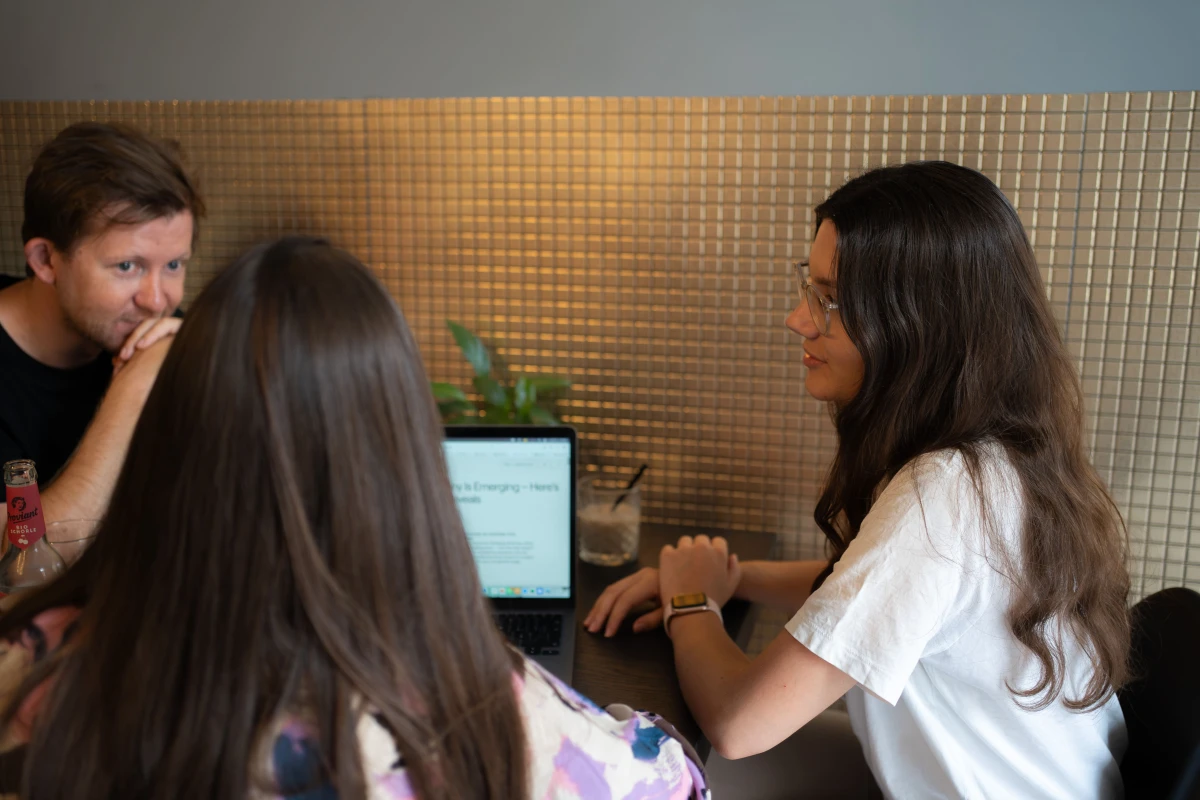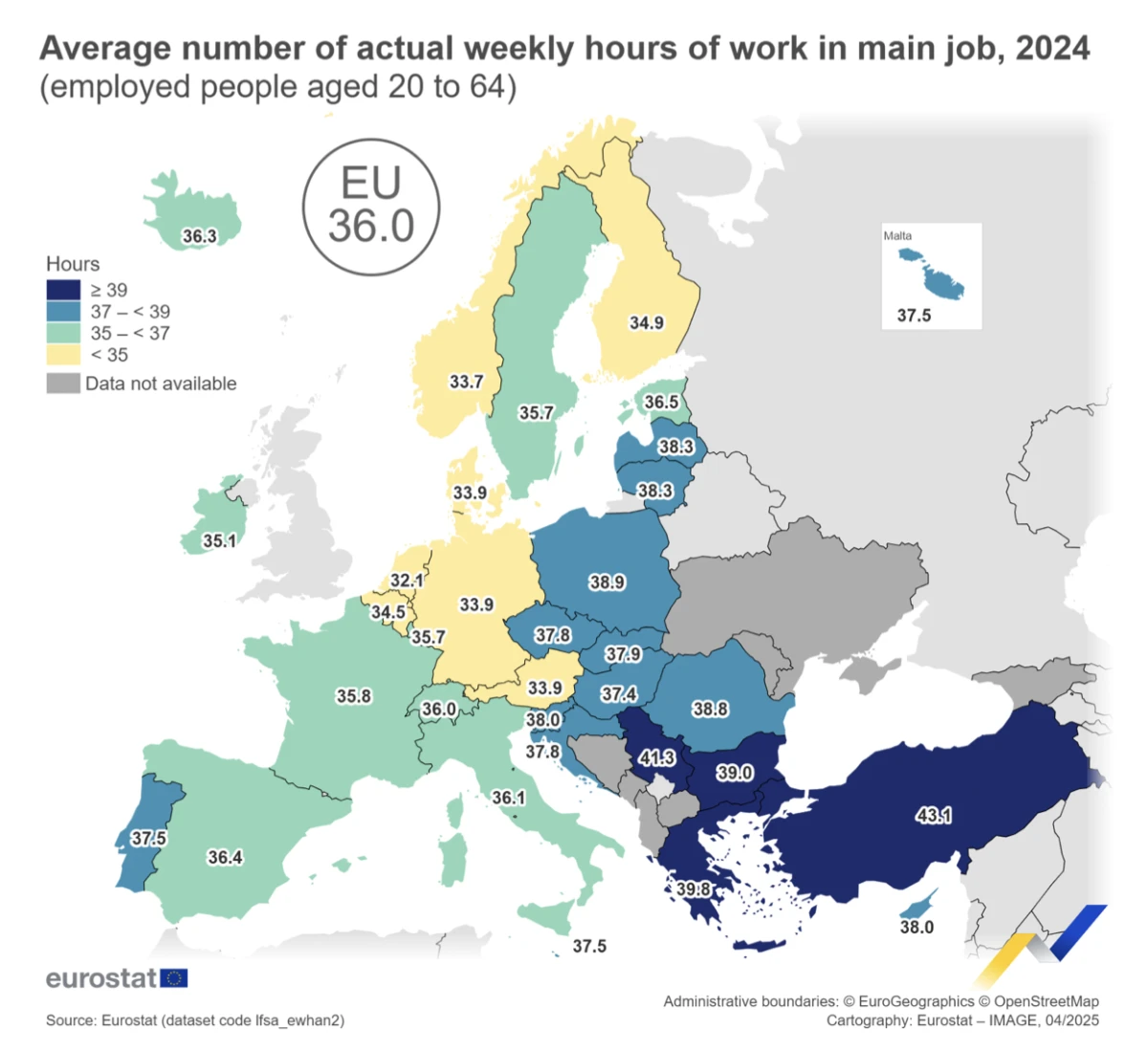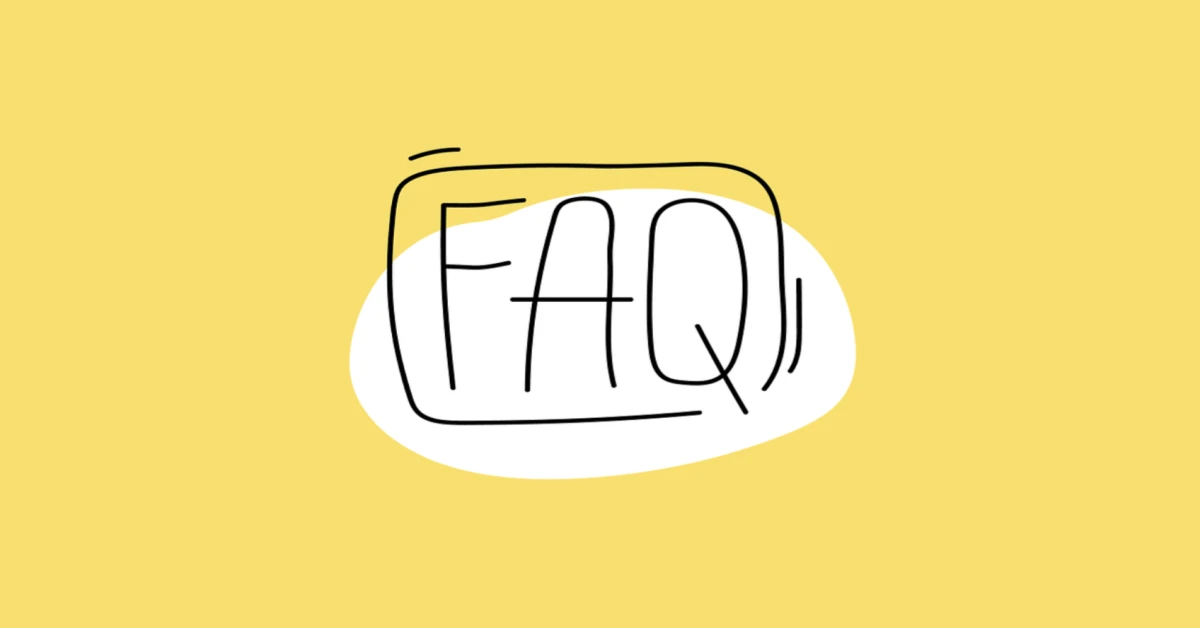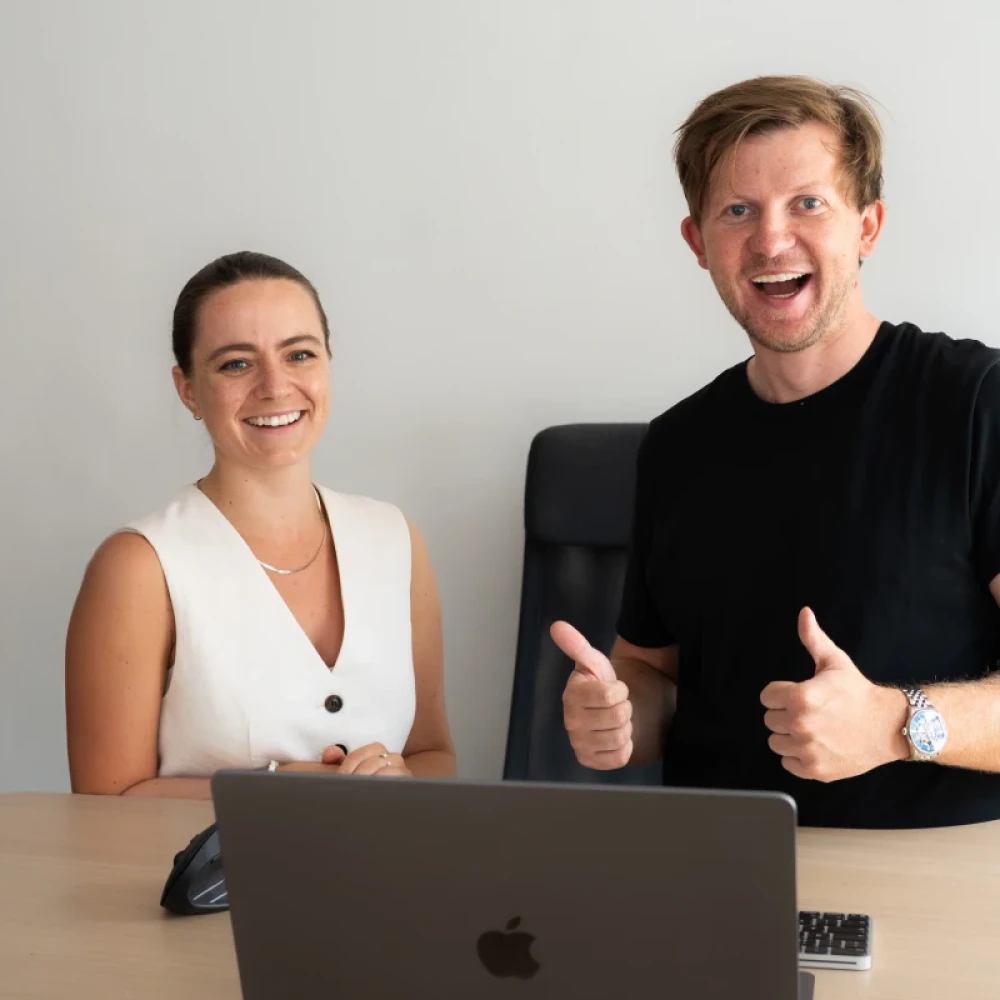


Doing a Marketing Internship Abroad: Czechia vs. Germany
A marketing internship abroad can be a real career booster – but how does the experience differ between Czechia and Germany?
In this article, we compare both countries from the perspective of young marketing talents. What does day-to-day work look like? What do companies expect? And what should you keep in mind when applying for an internship across the border?
A marketing internship abroad can be a real career booster – but how does the experience differ between Czechia and Germany?
In this article, we compare both countries from the perspective of young marketing talents. What does day-to-day work look like? What do companies expect? And what should you keep in mind when applying for an internship across the border?
Two countries, two experiences
An internship abroad doesn’t just advance your career – it also changes how you think about work, teamwork, and everyday life on the job. It broadens your horizons and shifts your perspective.
My name is Kristina. I’m a student of International Business Administration, just starting out in my career and travels. Right now, I’m doing my internship at going.international, a creative AI startup in the heart of Prague, where I’m part of the online marketing team.
Both of my internships have shaped me in different ways: In Germany, I worked at a large, established corporation – VARTA. In Czechia, I’m now working at a small, creative startup in Prague, going.international. Two worlds, two countries – even though they’re neighbors, they have completely different cultures and ways of thinking.
In this article, I’ll take you along on my journey through two very different work cultures: How was I treated as an intern? What surprised me – in the office, in meetings, and in everyday interactions? And what lessons can you take from my experience for your own internship abroad?
If you're currently considering whether an internship in Czechia, Germany (or perhaps another country entirely) is right for you, you’ll find honest insights, funny observations, and practical tips here. Maybe you’ll recognize yourself in some of the situations – or maybe this will be the spark that inspires you to head off on your own adventure.

What can you expect from an internship abroad?
The Road to Your Internship – Application & Organization
In Germany, many things are handled in a very formal and structured way – especially at large companies like VARTA. The application process followed a standard procedure: online application, interview, written offer, and contract. This structure provides a sense of security, but it can sometimes feel a bit rigid.
In Czechia, on the other hand, the process was much more informal. I contacted a startup in Prague directly, had a casual video call – and a few days later, I got the internship offer. Most communication happened via email or Slack. Contracts? Yes, but often signed just shortly before the start – and with way less paperwork.
My tip: If you love structure and careful planning, an internship in Germany might be the right fit for you. But if you’re more flexible and spontaneous, Czechia offers plenty of exciting opportunities – especially in the start-up scene.After completing my internship at a large corporation, I wanted to experience a different world – not just culturally, but also in terms of how people work. That’s why I chose the Czech Republic
Work Areas and Tasks – Clearly Defined or More Flexible?
In Germany, my responsibilities were clearly defined from day one: I received a list of tasks, contact persons, and schedules. At the start of the internship, there were lots of presentations, explanations of tasks, and IT onboarding. I knew exactly what was expected of me – but there was little room for my own ideas, at least in the beginning.
Since VARTA regularly hosts interns, they knew exactly which tasks to assign and which not to. To help me get started, they showed me past solutions and the work of previous interns. This was really helpful – but it also limited my ability to think independently and “outside the box.”
Everything had to follow a certain structure and look a certain way. Even tools like AI were unfamiliar territory at the time and not really encouraged. Things are starting to change in some industries, but Germany is still clearly lagging behind.
In Czechia, it was the complete opposite: just a few days in, I was given my own little project – to design a website based on my own ideas. I could suggest tools, test things out, get feedback, and work independently. It was a bit more chaotic, but incredibly motivating.
A key difference: I was the very first intern at the company. That meant I was involved in all projects and got to try a wide range of tasks. Nothing was off-limits, and I had the freedom to plan and prioritize my own work. I learned a lot in a short time – and got to take full ownership of my role.
How to Land an Internship – Through Uni, an Agency, or on Your Own?
In Germany, internships are often arranged through universities: mandatory internships, pre-approval, academic supervision. Even internships abroad are frequently organized via exchange programs like Erasmus+.
In Czechia, I experienced how direct and straightforward getting an internship can be – especially with young companies. Most of the time, you simply reach out to the company and go through the application process yourself.
Important: In both countries, internships can be either paid or unpaid. In Germany, internships lasting longer than three months usually require compensation by law. In Czechia, the rules are more flexible – but getting paid is not a given. That’s why it’s important to check early on whether you’ll receive a salary or if you can apply for funding, such as Erasmus+.
What You Should Bring to the Table
No matter where you do your internship abroad – it pays off to approach it with an open mind and strong self-organization. Here are my key takeaways:
In Germany, punctuality, reliability, and clear communication are essential.
In Czechia, you’ll need to be flexible, able to improvise, and comfortable taking responsibility.
Whether you organize your internship through your university, a placement agency, or on your own – the process varies depending on the country.
That’s why it’s worth researching the local specifics early on, either through the foreign ministry or internship forums. And don’t forget the legal side! As an EU citizen in Czechia, you’re required to register with the Foreign Police within 30 days – though many landlords handle this for you, so it’s best to just ask.
In Germany, my path was clearly structured: application, interview, employment contract. In Czechia, things were more informal. What mattered most was being proactive and open-minded.
Typical tasks vary greatly by industry – and also by the type of company. In Germany, my role was clearly defined from the start. In the Czech startup, I was given my first independent project after just one week – with full freedom to make decisions.
In the end, it all comes down to learning by doing. The more time passes, the more comfortable and confident you’ll become in your role – just give yourself the space to grow.
From Structure to Spontaneity – Office Life in Two Countries
🏢 Germany (VARTA):
Fixed working hours
Meetings start on time and follow a set agenda
Strict lunch breaks
Clear responsibilities
🚀 Czechia (Start-up):
Flexible working hours
Five minutes late? No problem
Lunch break whenever it suits you
A lot of responsibility from day one
My impression: In Germany, everything felt “set in stone.” A fixed formula that always had to be followed – no exceptions.
In Czechia, improvisation is part of the company culture.
Also worth noting: In Prague, public transport is so well developed that parking situations like in Germany are quite rare. Most people get to work by metro or tram. Especially in the city center, having a car often doesn’t make much sense – parking is limited and not always convenient.
That’s quite different from Germany. During my first weeks at VARTA, I was still commuting – 1.5 hours per day, even though the actual drive was just 35 minutes. In Prague, this isn’t an issue. The metro is often even faster than driving. It takes me around 15 minutes to get to work – and I don’t even have to live in the city center.

How Interns Are Treated: Kristina or “The Intern”?
In Germany, I was “the intern” – with a clearly defined set of tasks. Occasionally, I was given something extra to do on the spot, but those were rare exceptions. Feedback didn’t come spontaneously; instead, meetings were scheduled where I received direct and honest input – without sugar-coating. I truly appreciated that. It helped me take the feedback seriously and put it into action.
In Czechia, on the other hand, I was simply Kristina from day one. I was included in the team, invited to join discussions, encouraged to share my own ideas – and introduced to clients and colleagues as a peer. Compared to my experience in Germany, this felt incredibly refreshing.
This approach gave me the sense that people really trusted me. I felt like a true part of the team – not just “the intern” who’s only there temporarily.

My Top 5 Takeaways About Work Culture
Formal vs. Informal Language
In Czechia, using first names and informal language is the norm – even with your boss. In Germany, communication tends to be more formal, although it can vary depending on the company.
Punctuality & Time Perception
German meetings start precisely on time. In Czechia, being “relaxed but on time” is usually enough.
Team Spirit & Togetherness
In Czechia, people eat together, laugh, and improvise. In Germany, the atmosphere is polite and professional – making jokes with your manager is rare, and showing respect is essential.
Initiative & Responsibility
Czechia: “Just go for it.”
Germany: “Here’s your checklist – please follow it.”
Breaks & Free Time
In Czechia, you take a break when you need one. In Germany, breaks are scheduled and strictly followed.
Numbers That Show the Difference
Self-Employment Rate (2023*):
🇨🇿 Czechia: 16%
🇩🇪 Germany: 8.6%
➝ Czechia shows a stronger entrepreneurial spirit. This is reflected in the work culture, where many people consider starting their own business. The system in Czechia also makes it easier to become self-employed.
Average Weekly Working Hours (2024, Eurostat*):
🇨🇿 Czechia: 39.7 hours
🇩🇪 Germany: 34.9 hours
➝ On average, people work more hours in Czechia – often with more flexible structures. It’s not uncommon to send or receive emails late in the evening, while in Germany, “Feierabend” (end of the workday) truly means switching off. Germans value work-life balance as one of the most important aspects of life.
Compared to other EU countries, Czechia ranks in the top third for longest working weeks in 2024. It’s fairly normal to stay longer at work when a project requires it. In Germany, that’s quite unusual. However, most companies in both countries are understanding when it comes to interns – and don’t expect them to work overtime.

My Key Takeaways from Germany and Czechia
Both internships have shaped me – but in different ways.
Germany gave me structure, precision, and a sense of security.
Czechia gave me the confidence to work independently, pursue my own ideas, and contribute creatively.
My tip for you: When choosing your internship, don’t just focus on the country – also think about the type of company. Do you want clear processes or creative freedom? Do you prefer to observe or to try things out yourself? Depending on that, a larger or smaller company might be the better fit for you.
An internship abroad can offer both – you just need to find the right place for you.
Going.international is also regularly looking for new interns.
If you enjoyed this article and would like to be part of the team, apply here:
👉 https://going.international/de/career
FAQ – Frequently Asked Questions About Internships in Czechia & Germany

How can I find an internship in Czechia?
Via job platforms like jobs.cz, startupjobs.cz, or through personal connections. If you're still a student, check your university – they often post domestic and international internship offers.
How do I apply for an internship in Germany?
Ideally 3–6 months in advance, either directly through company websites or via job portals.
Do I need language skills?
In German corporations, speaking German is usually required. In internationally oriented companies, English is often expected too. In Czech start-ups, English is typically enough – and some teams also speak German.
Do I need a visa?
As an EU citizen, you don’t need a visa for either country. However, in Czechia, you must register with the Foreign Police within 30 days of arrival – this is often handled by your landlord, so don’t hesitate to ask.
When should I apply?
Germany: plan well in advance (3–6 months ahead).
Czechia: more flexible – applying early is still recommended, but it’s often possible to find a spot even at short notice.
Sources
Eurostat (2024). Average weekly working hours by country.
https://ec.europa.eu/eurostat/statistics-explained/SEPDF/cache/85131.pdfTrading Economics (2023). Germany – Self-employed (% of total employed).
https://tradingeconomics.com/germany/self-employed-total-percent-of-total-employed-wb-data.htmlDestatis (2023). Self-employment rates in international comparison.
https://www.destatis.de/DE/Themen/Laender-Regionen/Internationales/Thema/Tabellen/Basistabelle_Selbststaendigenquote.html
Obsah
- Two countries, two experiences
- What can you expect from an internship abroad?
- What You Should Bring to the Table
- From Structure to Spontaneity – Office Life in Two Countries
- How Interns Are Treated: Kristina or “The Intern”?
- My Top 5 Takeaways About Work Culture
- Numbers That Show the Difference
- My Key Takeaways from Germany and Czechia
- FAQ – Frequently Asked Questions About Internships in Czechia & Germany
- Sources

Dočetli jste až sem? Super!
Máte chuť jít ještě víc do hloubky? Pojďme to probrat společně.